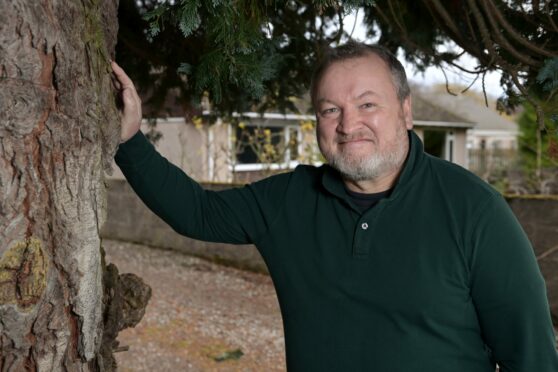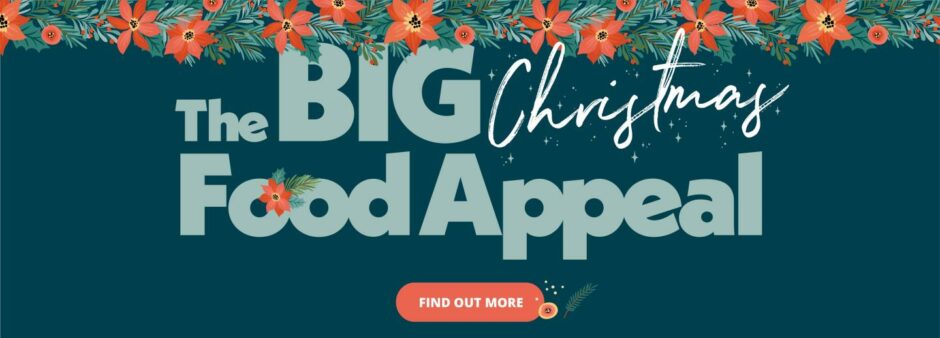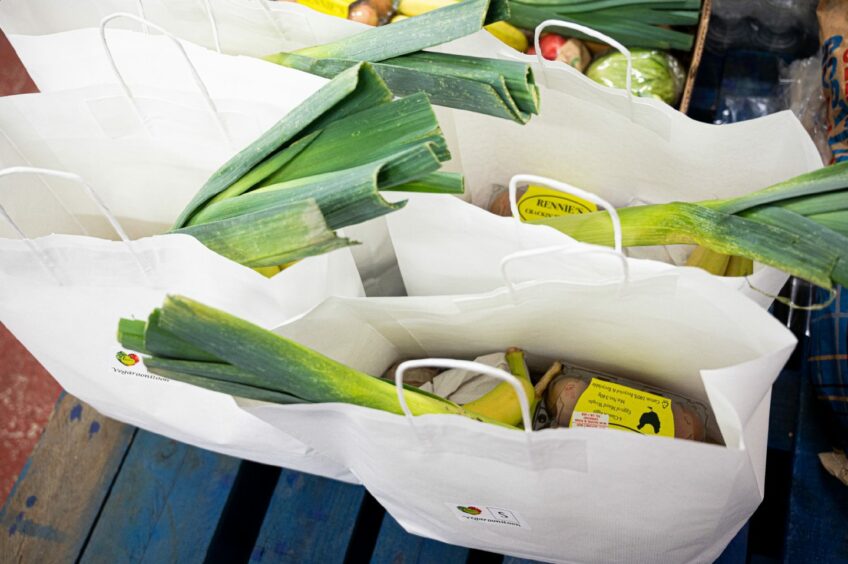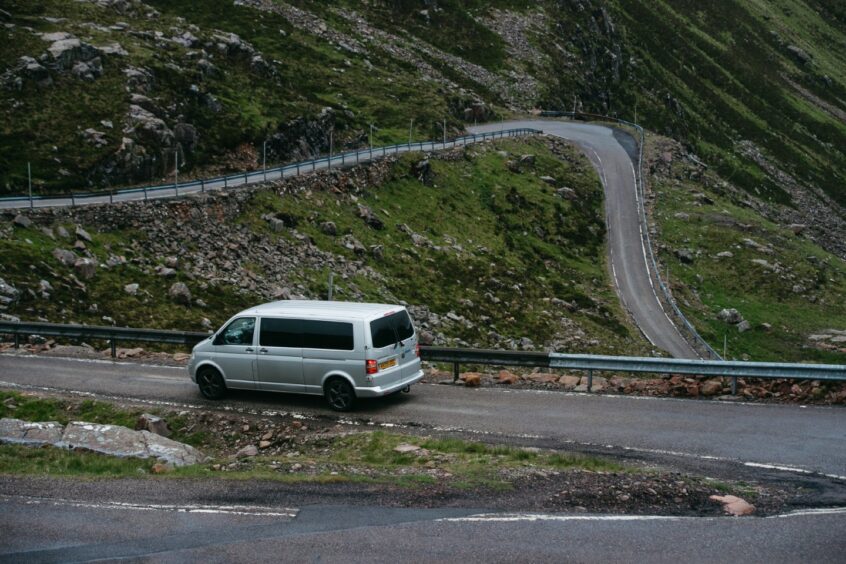Organising Christmas can always seem a bit daunting.
All manner of lists are drawn up – from the gifts to buy, food to get in or even the timetable of when the turkey needs to go to coincide with all the trimmings being ready.
Then there’s the mission of packing all the beautifully wrapped gifts into the car if travelling further afield to visit loved ones.
But for Cfine, those kind of logistics would be a doddle.
The team is well used to juggling the needs of different communities while also masterminding just how to get food to them at the right time – whether by land or sea.
Despite its full name – Community Food Initiative North East – the charity distributes food well beyond Aberdeen and Aberdeenshire – taking in Moray, Inverness, Caithness, Lochaber, the Western Isles, Orkney and Shetland.
Mike Sutherland is the development officer for Cfine in the Highlands and Islands, and admitted the geography of the area can pose a challenge.
But the retired detective chief inspector praised the local haulage companies who work closely with the charity to get food to the areas most in need, doing their part to tackle not just food poverty – but also food waste.
Understanding community needs top priority
Cfine is FareShare’s network distributor for Grampian and the Highlands, meaning the team not only distribute donations coming in from the public but also surplus stock collected through the national organisation’s deal with suppliers and supermarkets.
This food surplus – edible food that isn’t going to be sold for reasons such as over-production or short shelf-life – goes to other charities like Aberdeen Cyrenians or is used at breakfast and lunch clubs, or on cooking courses for low-income families.
One of Mr Sutherland’s key roles is ensuring that both the donations and food surplus are sent to the correct groups to meet demand.
He said: “The food industry has a massive surplus – if that’s not tapped into it, it’s thrown out.
“We work to make sure that food is given to breakfast clubs, lunch clubs – even Scout groups – to make sure it doesn’t get thrown away.
“One of my main roles is to understand what’s going on, building relationships with the four local authorities (Highland, Orkney, Shetland and Western Isles), the third sector and the NHS to understand how many groups need help with food and taking it from there.
“I need to listen to the communities and recognise what they need.”
At the height of the pandemic, FareShare was given more than £2million funding from the Scottish Government to support those most at risk of food insecurity.
Mr Sutherland said more than 500 tonnes of food – or 1.3 million meals – were delivered to the Highlands and Islands.
And you can help feed even more people, by backing The Big Christmas Food Appeal, launched by The Press and Journal, Evening Express and Original 106 yesterday.
We want to raise awareness of food poverty, and have teamed up with Cfine to help feed families across the north of Scotland.
Getting things moving
Mr Sutherland said: “One of the biggest issues we’ve got here is logistics.
“We needed to get things moving around the Highlands and islands as efficiently – and as greenly – as possible, so I phoned the haulage companies and got a really good response.
“They transport pallets of food for nothing – I get food delivered from Aberdeen to Inverness and then distribute out to the communities.”
Graeme Robbie, who heads up the team in Aberdeen, added: “It’s quite a big operation – it takes a lot of work and planning and our volunteers play a key role in that.”
Cfine has its own vans in Inverness, and volunteer drivers deliver food as far as Brora. The rest is taken further north by hauliers including ARR Craib, Williamson Foodservice, Skye Express, JBT, MacLean Transport and DR MacLeod.
The next step for the charity is setting up a warehouse in Inverness, which remains a work in progress.
“We really need a base in Highland area,” Mr Sutherland said. “That would allow us to offer a completely different type of service that’s more flexible and accessible, allowing people to come to us as well.
“We’ll still continue working to support those on the islands facing food insecurity.”
On the islands, the foodbanks are operated however suits the needs of the community best. For example, on Shetland, it is managed by the council, while in the Western Isles, Stornoway Golf Club is one of the main points of contact.
No furlough, no tourism – struggle ahead for rural communities
Mr Sutherland said Cfine will work with any other foodbank and organisations such as the Trussell Trust and NHS to help end food poverty which is affecting people of all ages.
He fears the next few months will be particularly challenging, and said it would hit the rural communities hardest.
“The rural communities in the north are hit hard,” he added. “People need to have a car to get anywhere. Nothing is close to anything – people suffer in terms of not having city infrastructure for transport so that makes it a challenge.
“Petrol prices have gone up. Electricity has gone up. General costs of living are going up – right at the time when furlough is ending and seasonal jobs have wrapped up for the year. That’s going to have a huge impact on those areas that rely on hospitality and tourism.
“However, it’s fantastic what’s going on communities to make sure people are supported.
“There are lots of different models of foodbanks, but it’s important they’re based on choice and that we take a dignified approach to it.
“It’s a really difficult subject for people to talk about, and some people might see a stigma attached to it and not want to ask for help.
“But people shouldn’t feel embarrassed. The help is there and we want to do it in a dignified way.”



